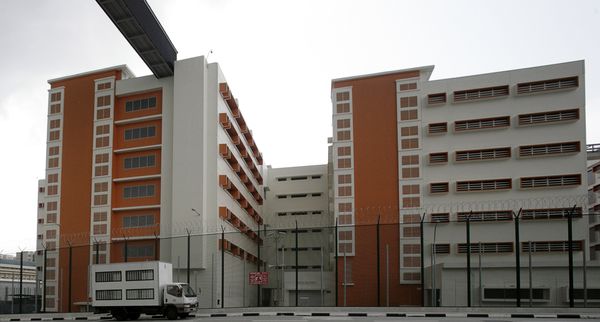
A former veterans’ affairs minister has conceded no serious attempts were made under his watch to adopt urgent reforms in his department in a series of hostile exchanges before the Royal Commission into Defence and Veteran Suicide.
Darren Chester, who served as the federal minister for veterans’ affairs and defence personnel for two years until July 2021, came under attack as he attempted to defend the coalition government’s failure to act on a series of reforms recommended by the Productivity Commission in 2019.
Pressed repeatedly about what steps he and the Morrison government had taken, Mr Chester struggled at times to explain why work had not progressed beyond his call for a “legislative roadmap” in May 2021, two months before he left the portfolio.
He also claimed he was unconvinced the notoriously complex Department of Veterans’ Affairs claims system, and a huge backlog of claims, could be directly linked to a high suicide rate among defence members and veterans.
Counsel Assisting, Peter Singleton, asked Mr Chester if he could explain why – in the three years since the Productivity Commission had delivered its report – there was no decision by the government to commit to any of the reforms.
This included three key recommendations to “harmonise” highly complex pieces of legislation identified as the primary cause of the 60,000-strong backlog of claims at the department, Mr Singleton told the inquiry sitting in Townsville, Queensland on Wednesday.
“I will put it very bluntly. We’ve received written evidence from the DVA that no decision as of earlier this year has been made by the Australian government on these three recommendations. Not a decision in principle, not any decision has been made,” Mr Singleton put to Mr Chester.
“To the best of your knowledge, that is still the case, isn’t it?”
Mr Chester said he was not quite sure what Mr Singleton meant by “no decision”.
Mr Singleton qualified “no decision on whether to accept or reject the recommendations, in principle or in detail”.
“I think that is largely fair in the way you’ve described it,” Mr Chester responded.
But Mr Chester insisted it wasn’t “entirely accurate” that the government had made no progress.
He pointed to his request for the department to develop a “legislative roadmap” in May 2021 to simplify compensation and entitlements legislation for veterans and defence members.
“I hope I’m not trying to hedge my bets, but I do believe there has been some decision in that regard that government is seeking to pursue through the normal process, through DVA and consultation,” Mr Chester told the inquiry.
In one of several terse exchanges with royal commission chair Nick Kaldas, Mr Chester was asked why he had tasked the department to prepare a legislative roadmap yet “did not set a firm deadline or timeline” for it to report back.
Mr Kaldas asked: “Would you agree there was no follow-up from your office asking them what has progressed?”
Mr Chester replied: “No. I’m not clear on that point, sir. I mean, that was May 21.”
Mr Kaldas: “So there may have been some follow-up but it didn’t yield anything, it didn’t yield the map?”
Mr Chester: “In terms of the plan?”
Mr Kaldas: “Yes.”
Mr Chester: “You are correct.”
Asked by Mr Singleton if he accepted the “sheer complexity” of the department’s claims system had led to mental health problems for some veterans, Mr Chester admitted that had been a concern for him as minister.
But he wasn’t sure there was a “direct causal link” with suicide rates.
“All I’m saying is, I can’t point you to a case where I can say a single individual veteran went down a pathway of suicidality as a direct result of a complex system,” Mr Chester told the inquiry.
“I do agree with you entirely that having a system which is so complex and confusing to navigate can add to the anxiety and the stress.”
The commission, which began its inquiry in 2021, is examining systemic and cultural failures that have led to high rates of suicide among members and veterans.
Lifeline 13 11 14
beyondblue 1300 22 4636
Lifeline 13 11 14
Open Arms 1800 011 046







